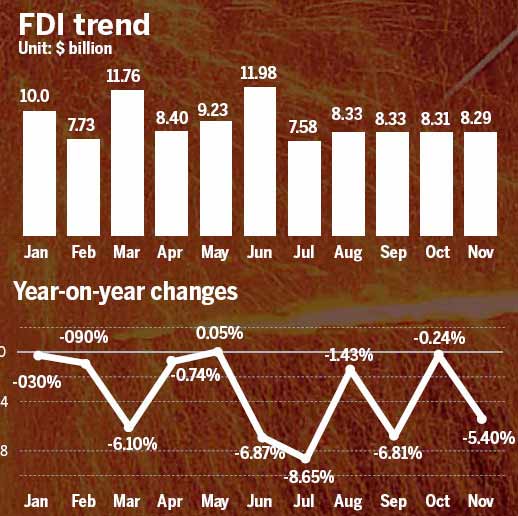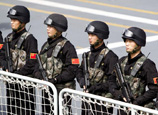
 |
| Investment from the United States increased 6.3 percent year-on-year to $2.91 billion from January to November, and that from Germany rose by 25.8 percent, offsetting the weak performance of the European Union as a whole. The EU's investment in China dropped by 2.9 percent for the period. |
The slowdown of FDI partly resulted from the excessive production capacity of domestic manufacturing industry, according to He.
FDI into the manufacturing industry shrank by 7.1 percent year-on-year to $43.97 billion from January to November, according to the ministry.
Foreign investors are shifting their focus from manufacturing to the services industry. The services industry attracted $47.57 billion of foreign investment from January to November, down 2.5 percent year-on-year, the ministry said.
"To be frank, China's FDI will face a tough situation next year, as global investment has been unavoidably divided into other countries in the world since the onset of the global financial crisis," Shen said.
The rising costs of domestic raw materials also have affected foreign investment's uptrend in China.
But Shen also said that some countries who claimed that China's investing environment has deteriorated have reduce foreign investors' confidence in the Chinese market to some extent.
Commerce Minister Chen Deming rejected that claim earlier.
"It's groundless to say that China's investing environment has deteriorated," he said.
Shen is optimistic about the FDI outlook.
"In 2013, the ministry will take measures to maintain the size of China's FDI and enhance the quality of foreign capital utilization," Shen said.
China will emphasize the protection of intellectual property rights and foreign enterprises' rights. The ministry will work hard to help facilitate foreign investment, officials have said earlier.















 Sex case leads to warnings about apps on smartphones
Sex case leads to warnings about apps on smartphones


![]()
